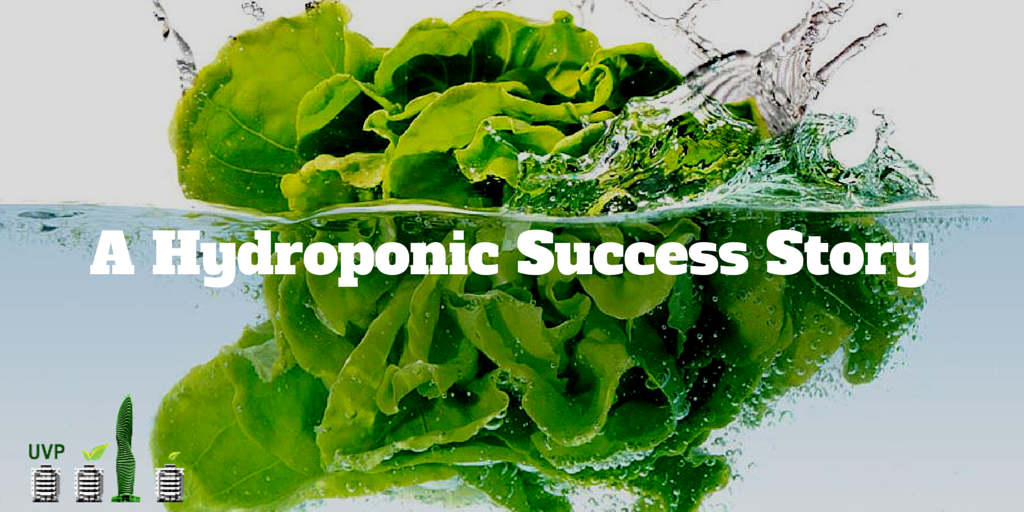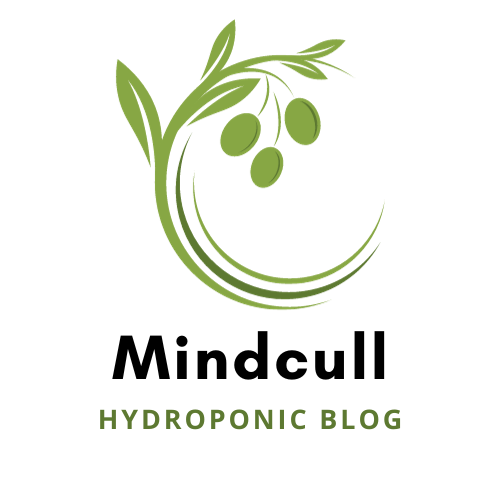From Seed to Abundant Harvest: Hydroponic Success Stories
Hydroponic Success Stories – Discover How People are Thriving with Soil-less Gardening!
Are you ready to dive into the fascinating world of hydroponics? Get ready to be inspired by incredible success stories that prove the power of soil-less gardening. We’ve collected real-life tales of growers who have taken their love for plants to new heights, achieving bountiful and thriving gardens without traditional soil.
Imagine growing fresh, healthy vegetables, herbs, and flowers all year round, regardless of the weather outside. With hydroponics, it’s possible! From urban gardeners to commercial farmers, people worldwide are embracing this innovative technique and reaping its rewards. Join us on a journey through hydroponic success stories and be prepared to be amazed!
Whether you’re a beginner or a seasoned gardener, these stories will provide insight, inspiration, and practical tips on how to succeed in your own hydroponic adventure. From small-scale setups in urban apartments to large-scale operations supplying local communities, the possibilities are endless. Get ready to explore the incredible world of hydroponics and discover how you too can become a part of these success stories. Let’s dig in, shall we?
Discover the inspiring journey of hydroponic gardeners who have achieved exceptional results in their endeavors. Learn from their experiences and gain valuable insights into the world of hydroponics. These success stories showcase the potential of this innovative gardening method and offer tips and advice for achieving your own hydroponic success. Whether you’re a seasoned hydroponic enthusiast or just getting started, immerse yourself in these captivating tales of triumph and let them inspire you on your own hydroponic journey.

Hydroponic Success Stories: Cultivating Success with Innovative Growing Methods
Hydroponic gardening has gained immense popularity in recent years, revolutionizing the way we grow plants. By eliminating soil and relying on a water-based nutrient solution, hydroponics offers a wealth of benefits for farmers and home gardeners alike. In this article, we delve into the fascinating world of hydroponic success stories, highlighting stories of individuals who have achieved remarkable results through this innovative growing method. From increased yields to year-round cultivation, hydroponics has transformed traditional agriculture and empowered individuals to cultivate success like never before.
Modern Marvels: Hydroponic Success Stories That Inspire
1. The Rooftop Revolution
The first success story comes from New York City, where urban agriculturist John transformed the barren rooftop of his apartment building into a thriving hydroponic garden. Facing limited space but a passion for sustainable farming, John learned the art of hydroponics and transformed his rooftop into a lush oasis, growing a variety of lettuce, herbs, and even dwarf fruit trees. Not only did he beautify the concrete jungle, but he also provided fresh, locally grown produce to neighboring restaurants and farmers’ markets, leading to a flourishing hydroponic business.
2. The Desert Dreamer
In the arid landscapes of Dubai, where water scarcity and extreme temperatures pose significant challenges, hydroponics has emerged as a game-changer. Ahmed, a young entrepreneur, pioneered the use of hydroponics to grow fresh produce in the desert. By utilizing advanced climate control systems and a precise nutrient delivery system, Ahmed transformed barren land into a thriving hydroponic farm, supplying the city with a stable and reliable source of vegetables. His success not only addressed food security concerns but also inspired numerous desert communities to embrace hydroponics as a viable solution.
3. The Sustainable Startup
Innovation is at the heart of the hydroponic success story of Emily and Mark, a couple with a dream of sustainable agriculture. Determined to reduce food waste and water consumption, they established a hydroponic farm in their community. By utilizing vertical growing systems and intelligent automation, they maximized space efficiency and optimized resource usage. Their farm became a model of sustainable agriculture, attracting attention from investors and inspiring other aspiring hydroponic farmers to embrace the benefits of this innovative growing method.
Benefits of Hydroponic Gardening
Hydroponic gardening offers numerous benefits that have contributed to its rise in popularity. Firstly, it allows for year-round cultivation, eliminating the limitations of seasonal changes. This ensures a consistent supply of fresh produce regardless of the climate or region. Additionally, hydroponics utilizes water and nutrients more efficiently than traditional soil-based farming, resulting in reduced water consumption and decreased nutrient runoff that may harm the environment. Moreover, the controlled environment of hydroponic systems allows for optimal conditions, minimizing the risk of pests, diseases, and weed growth, ultimately reducing the need for pesticides and herbicides.
Secondly, hydroponics provides the opportunity for vertical farming, optimizing space utilization in densely populated areas. By utilizing vertical growing systems, it is possible to grow more plants in a smaller area, making hydroponic gardening suitable for urban environments and areas with limited land availability. This aspect, combined with the elimination of the need for soil, allows hydroponics to be implemented in unconventional settings, such as rooftops, balconies, and indoor spaces.
Finally, hydroponic gardening offers improved crop yields and faster growth rates compared to traditional soil-based farming. The precise control over nutrient delivery and environmental factors allows plants to receive an optimal balance of nutrients, light, and water, promoting accelerated growth and healthier plants. As a result, hydroponic gardeners can enjoy higher yields within a shorter cultivation period, maximizing productivity and profitability.
Key Takeaways: Hydroponic Success Stories
- Hydroponics allows plants to grow without soil, using water and nutrients instead.
- One hydroponic success story is the Eden Project in Cornwall, England, which features beautiful sustainable gardens.
- Another success story is the Gotham Greens rooftop farm in New York City, where fresh produce is grown year-round.
- Hydroponic farming can increase crop yields and conserve water compared to traditional farming methods.
- Successful hydroponic farmers need to monitor water quality, nutrient levels, and lighting to ensure optimal plant growth.
Frequently Asked Questions
Welcome to our Frequently Asked Questions section where we explore some common queries about hydroponic success stories. Discover inspiring stories of individuals who have achieved great results using hydroponic systems and find answers to questions you may have about this innovative gardening method.
1. How do hydroponic success stories inspire and motivate gardeners?
Hydroponic success stories have a powerful impact on gardeners as they showcase the immense potential of this gardening method. These stories highlight the remarkable yields, faster growth rates, and year-round harvests that can be achieved in a hydroponic system. As gardeners read about real people who have achieved extraordinary results using hydroponics, it sparks their curiosity, ignites their passion, and gives them the confidence to try it for themselves.
By learning about successful hydroponic projects, gardeners get a glimpse of the possibilities that lie ahead. They gain inspiration, motivation, and a roadmap for their own hydroponic journey. Whether it’s a small-scale indoor garden or a large commercial operation, hydroponic success stories provide gardeners with valuable insights and techniques that can be applied to their own setups, ultimately leading to successful outcomes.
2. What are some key factors that contribute to hydroponic success stories?
Several factors contribute to hydroponic success stories, including careful planning, proper system design, and quality nutrient solutions. One important factor is the selection of the right crops. Cultivating crops that thrive in hydroponic environments significantly increases the chances of success. These include lettuce, herbs, tomatoes, strawberries, and leafy greens, among others.
Another crucial factor is maintaining optimal environmental conditions. This involves providing adequate light, temperature control, and air circulation within the hydroponic system. Monitoring and adjusting pH and nutrient levels are also essential to ensure plants have access to the necessary elements for growth. Finally, regular maintenance, including pruning, cleaning, and pest control, plays a vital role in achieving optimal plant health and productivity.
3. Are hydroponic success stories only achievable in large commercial setups?
No, hydroponic success stories are not only achievable in large commercial setups. While large-scale operations often demonstrate impressive yields and commercial viability, hydroponics can be successfully implemented on smaller scales as well. Home gardeners, hobbyists, and even apartment dwellers can achieve remarkable results with hydroponics.
Many hydroponic success stories come from individuals who have set up compact hydroponic systems on their balconies, windowsills, or in dedicated indoor spaces. These setups allow for year-round growing, maximize space utilization, and minimize water usage. By adapting hydroponics to suit individual needs and available space, anyone can embark on their own hydroponic success story.
4. Are hydroponic success stories achievable for beginners?
Absolutely! Hydroponic success stories are not exclusive to experienced gardeners. In fact, many inspiring stories come from individuals who started with little to no gardening experience before diving into hydroponics. The key to success for beginners lies in acquiring the necessary knowledge and skills.
Starting with a solid foundation in hydroponic principles, understanding nutrient requirements, and learning about different system options are essential first steps. There are numerous beginner-friendly resources available, including online tutorials, books, and community forums that provide guidance and support. By following best practices, beginners can avoid common pitfalls and lay the groundwork for their own hydroponic success story.
5. Can hydroponic success stories have a positive impact on food sustainability?
Absolutely! Hydroponic success stories have the potential to make a significant positive impact on food sustainability. With the world’s population continuously growing, the demand for fresh, nutritious produce is increasing. Hydroponic systems offer a solution to these challenges by maximizing food production with limited resources.
Hydroponic success stories demonstrate how these systems can produce higher yields in smaller spaces, using a fraction of the water consumed in traditional soil-based agriculture. By reducing water usage, minimizing pesticide and fertilizer runoff, and maximizing crop productivity, hydroponics can play a crucial role in sustainable food production, ensuring a more secure and resilient food supply for future generations.

How This 21-Year-Old Started Hydroponics Farming With Only 1k Capital | Real Stories Real People |OG
Summary
So, what did we learn from these hydroponic success stories? First, hydroponic farming is a soilless growing method that uses water and nutrients. It’s great for growing plants in limited space and can produce higher yields. Second, hydroponics allows for more control over plant growth, resulting in healthier, pest-free crops. Plus, it’s environmentally friendly because it conserves water and reduces the need for pesticides. Whether it’s lettuce in a shipping container or strawberries in a vertical tower, hydroponic farming is paving the way for a more sustainable and efficient future in agriculture.

